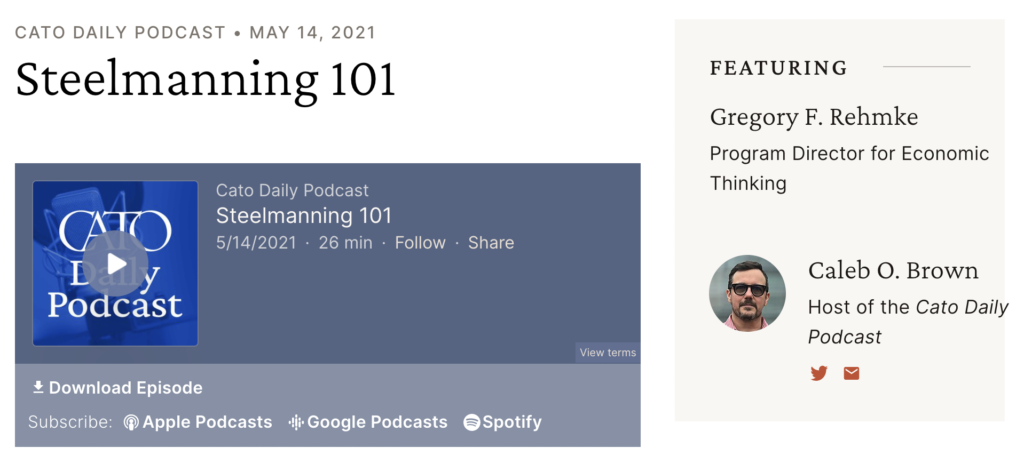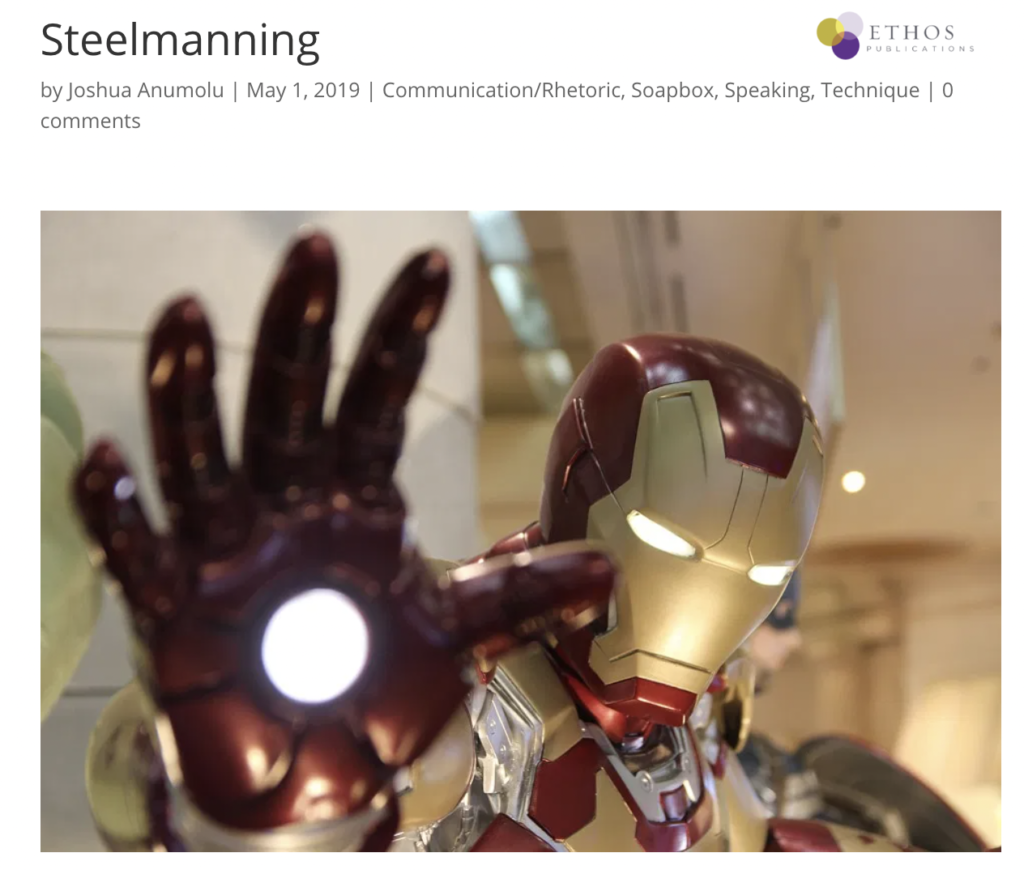Steelmanning 101: From Ethos Debate to Economic Thinking
Thanks to Caleb Brown of Cato Daily Podcast for taking time to discuss “Steelmanning” recently. Our discussion was posted May 14.

And thanks to Joshua Anumolu for his Steelmanning post for Ethos Debate. Joshua in turn draws from Robin Sloan to discuss this powerful tool for effective communications and debate:
Author Robin Sloan described attending debates sponsored by the Long Now Foundation. He was struck by the debate format, writing, “The first time I saw one of these debates, it blew my mind.”
Why were these debates so revolutionary? Sloan gives some context:
“Our democratic culture has, I believe, basically given up on debate as a tool for changing minds or achieving consensus. Instead, we use it as a stage for performance, for political point-scoring. When we debate — and this is true whether it’s a big televised event or a little online roundtable — we direct our arguments not at our opponents but rather at our allies. We rile the base. We face the choir. We preach!”
Steelmanning instead of Strawmanning
So many political debates misunderstand or misrepresent opposing positions. Some attack “strawmen” on purpose but most do so by accident. They don’t take the time to understand, develop, or empathize with what seem obviously wrong views.
Instead, the Steelmanning approach starts with the effort to make the best possible case for opposing positions, even trying to improving them. Then the discussion or debate is directed against these stronger claims.
Each year tens of thousands of high school, home school, and college debate students research and advocate economic and political reforms to skeptical opponents, coaches, and community judges.
Students can make the case for advancing economic freedom reforms or they can defend current or expanded government programs. In either case students also prepare to argue against these positions. Competitive debate generally has students research and advocate both for and against chosen resolutions or motions. A coin flip often decides which side they are on round by round at tournaments.
Economic Thinking workshops last summer and fall outlined the economic benefits of increasing labor mobility, as part of the expanding of international commerce. Like international trade and investments, broader choices, division of labor, and supply chain integration serves to advance peace, prosperity and human flourishing. But there are costs and trade offs too.
European Union immigration reform is the 2021 NCFCA league policy debate topic. So students have been exploring migration history, economics, and politics, as well as various policy reform proposals.
Just as improved labor mobility brings economic, political, and social benefits it also has economic, political, and social costs. Critics argue that many or most of these costs are consequences of misguided immigration and refugee policies, plus restrictive labor regulations and welfare programs. The Steelmanning approach calls for building the strongest arguments against more open immigration, as well as the strongest case for economic freedom.
Other debate leagues have topics on economic growth and stability, reducing US military commitments, and criminal justice.
For the NCFCA and Stoa, both homeschool debate leagues, families have recently voted on policy and Lincoln Douglas topics for the next school year and will announce those topics soon. I’ve posted brief economic notes on the proposed resolutions on Economic Thinking.

Again, I greatly appreciate the opportunity to discuss speech and debate with Caleb Brown for the Cato Daily Podcast. And thanks to Joshua and Ethos Debate for the idea and ideal of Steelmanning.
